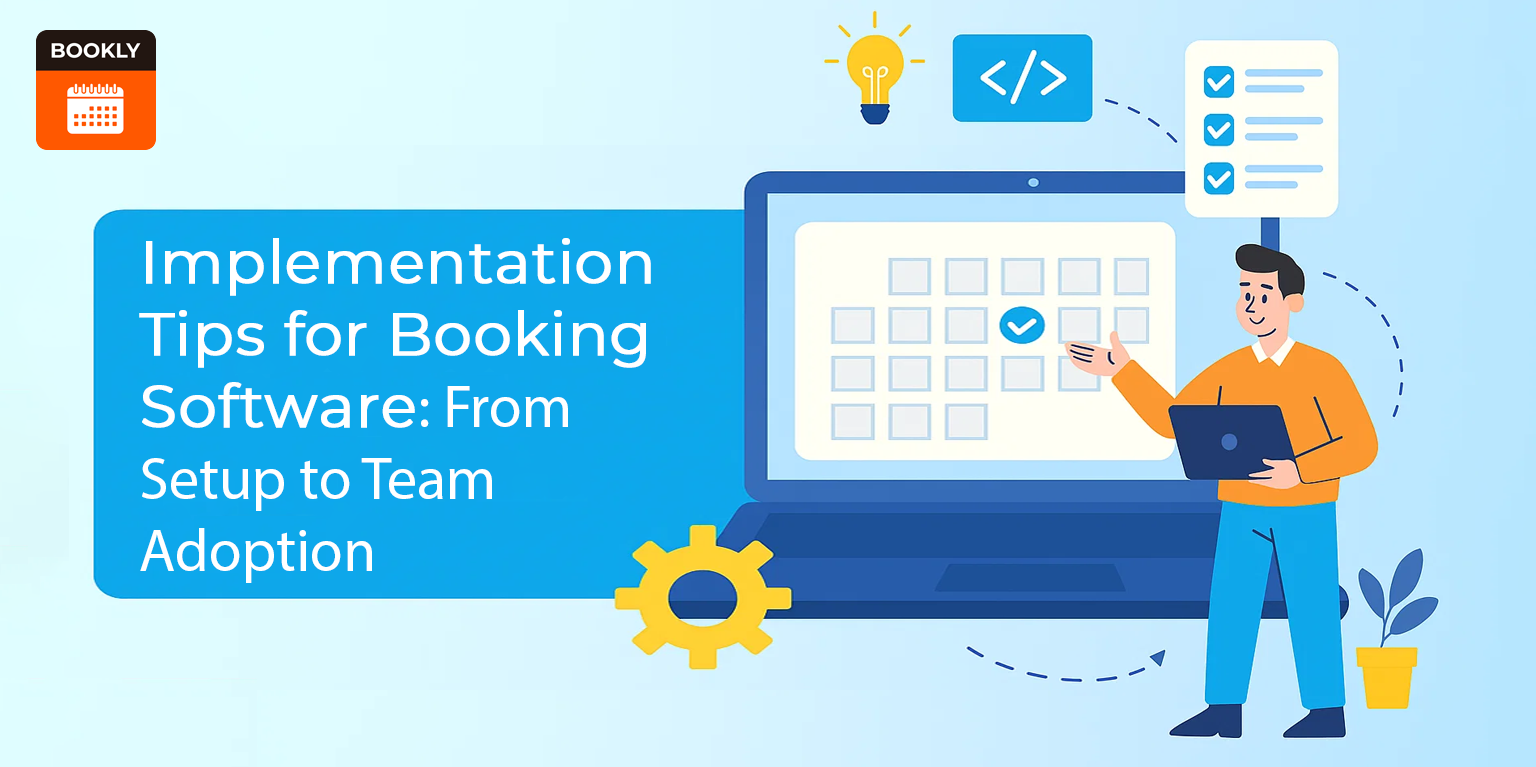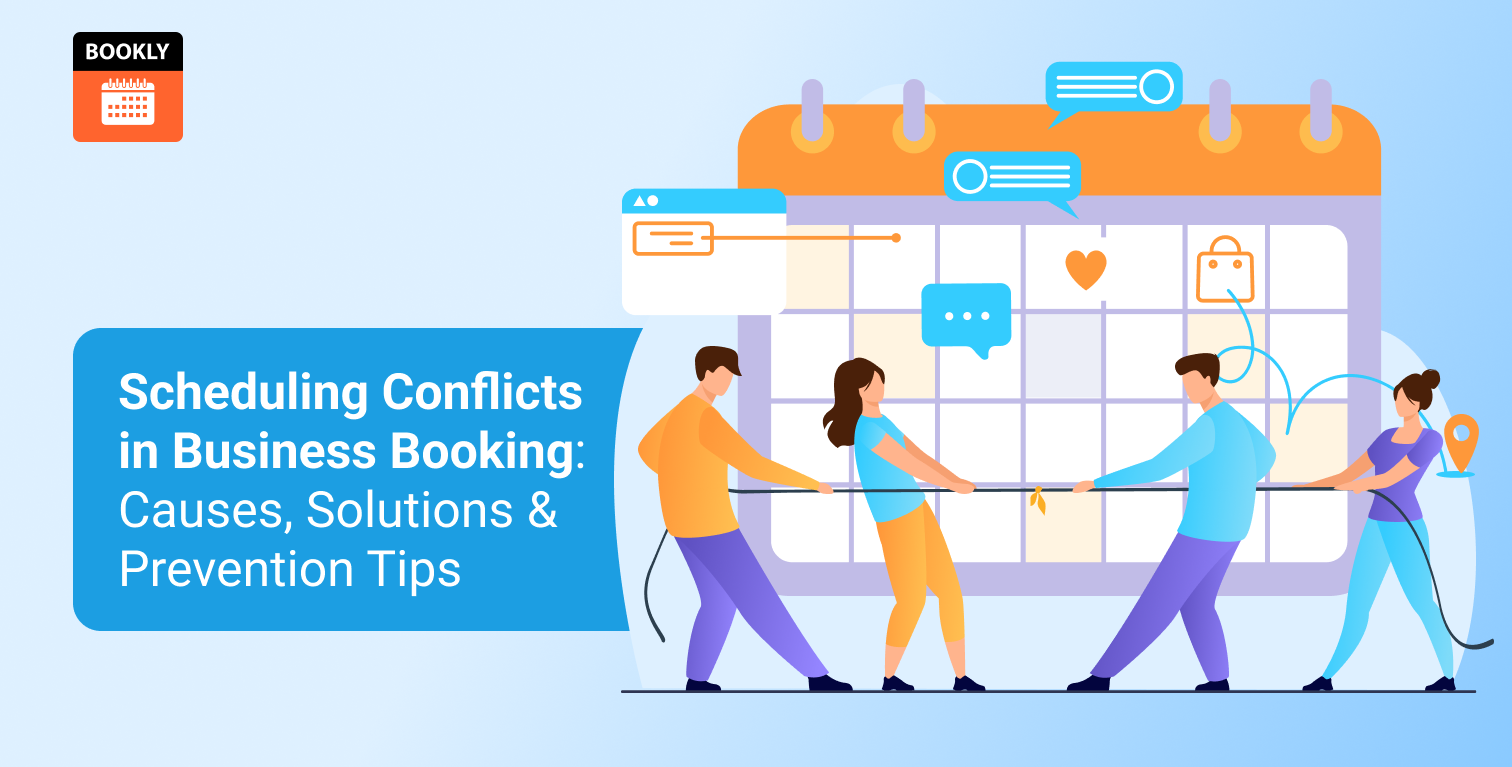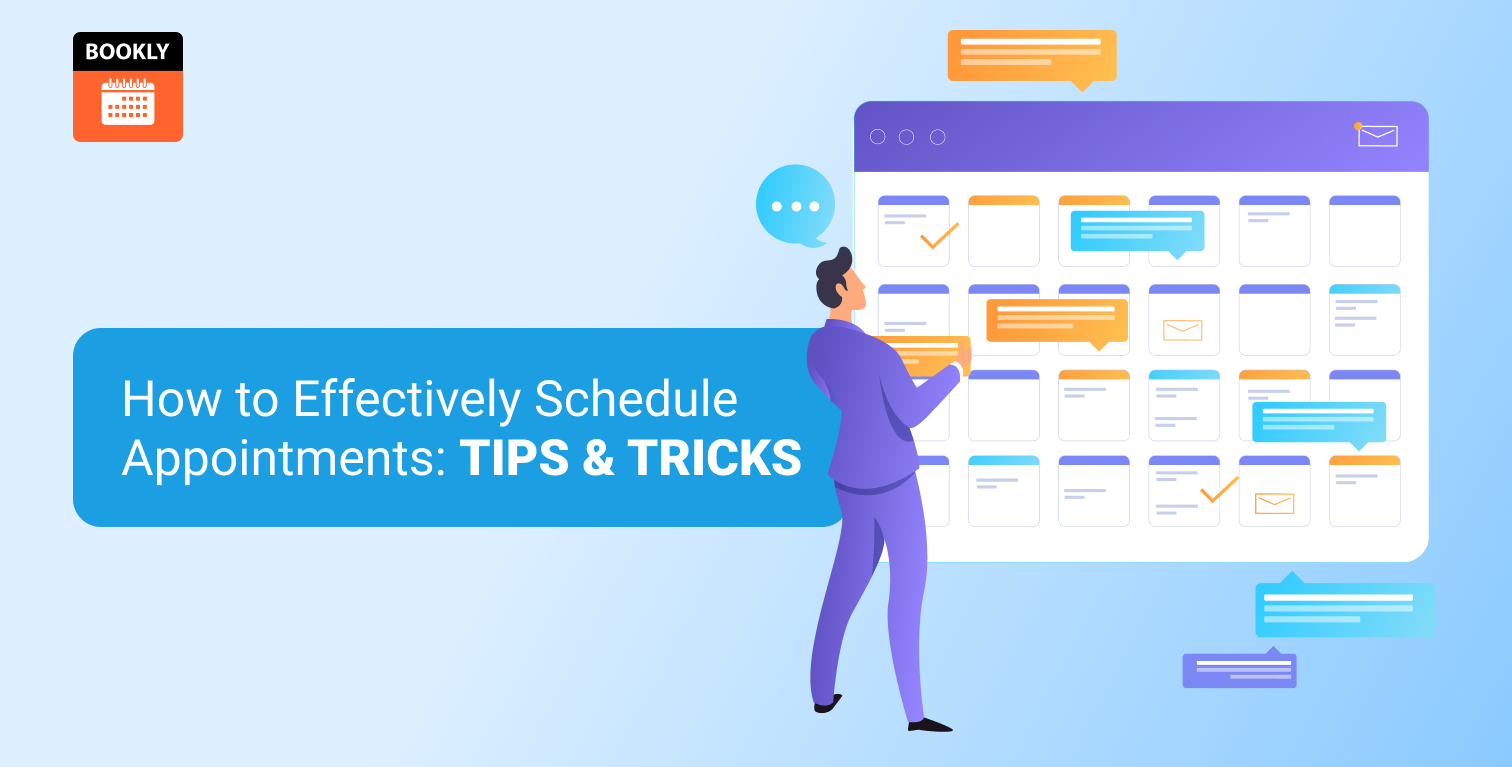
How to Effectively Schedule Appointments: Tips & Tricks
Effective appointment management is an essential life skill today, whether one is a busy worker, a student attending multiple classes, or a parent juggling family commitments. Scheduling appointments will save time, reduce stress, and make life much more productive.
These skills will keep you in command from making to setting up an appointment. Imagine the peace of mind from not worrying about double booking, forgetting appointments, or preparing. This is what effective scheduling can bring, allowing you to approach your day with a sense of calm and relaxation.
This blog is your passage to a transformed calendar. In it, we’ll discuss and give tips on setting appointments with clients along with some other practical things, and the best way to set appointments that can be thought of in any situation will be given. With such an intense approach, one can easily wave goodbye to the stress of setting up appointments and say hello to a more efficient and productive day.
Understanding the Importance of Effective Appointment Scheduling
Effective scheduling goes much further than blanketing a calendar with slots. What it will do is:
- Maximize Time Efficiency: Daily flow will align the tasks and appointments.
- Reduce Stress: Prevents the last-minute babble scramble or double booking by being organized.
- Instill Trust: Build reliability and professionalism by keeping one’s word and committing to promises.
On the contrary, poor scheduling could also lead to missed opportunities, squandering time, and spiraling into disconcerted relationships. Painful learning occurs in effective scheduling appointments, though, to avoid falling into these pitfalls, it builds a background of success. The ability to manage appointments with clarity and realism gives a more controlling hand over the situation, not to mention peace of mind when effective scheduling is employed.
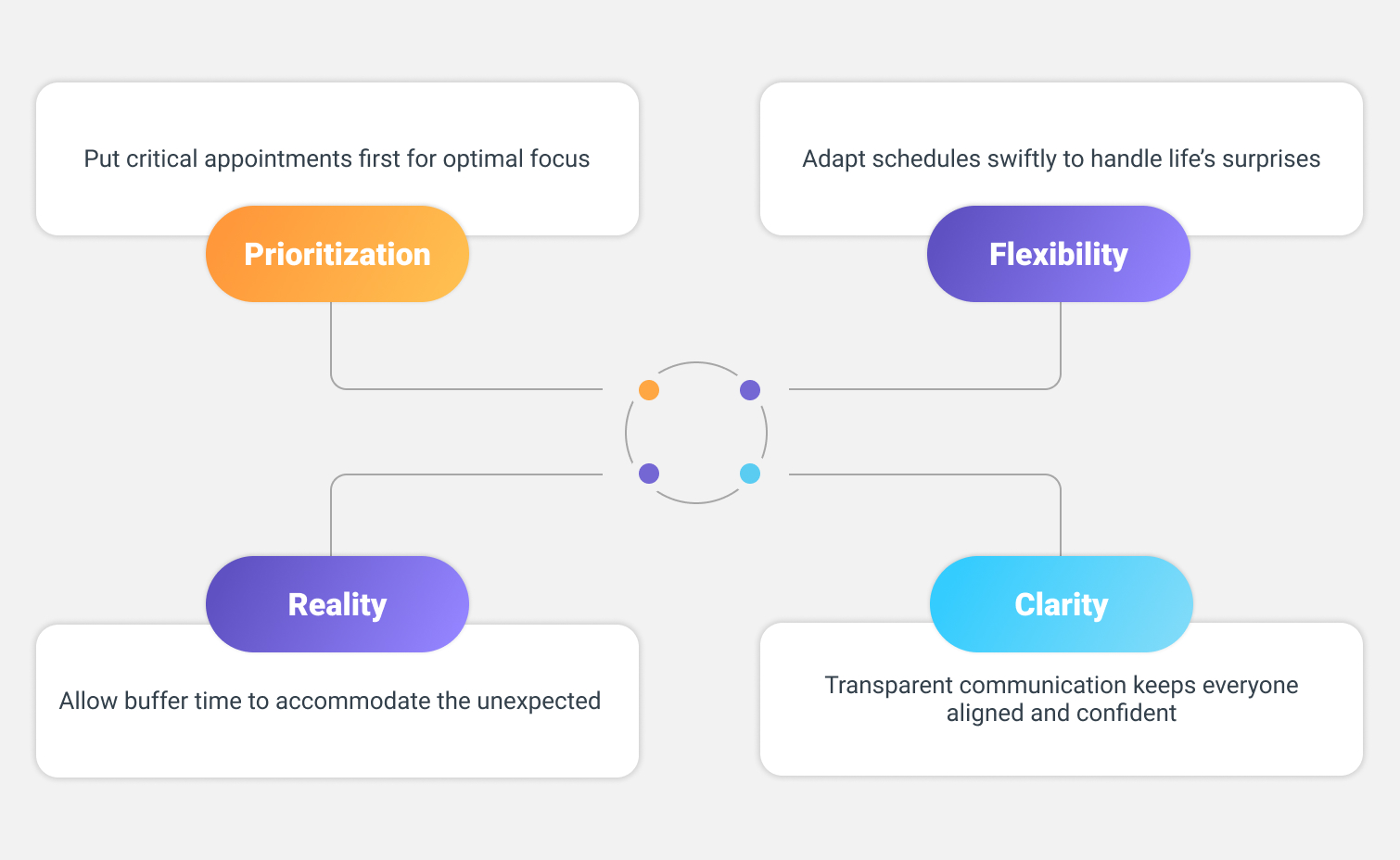
Key Principles of Appointment Scheduling
Effective scheduling of appointments is sometimes a talent, a knack for efficiency in the appointment-planning process. Use these principles as a foundation to improve your appointment planning skills:
- Prioritization: Not all appointments are equal. Adjusting them with priority ensures that the most important things—critical ones—come first. Bookly, for example, allows businesses to prioritize appointments, moving your appointment settings and later narrowing it down to those important meetings.
- Flexibility: Anything can happen; even the most well-cast plans can’t escape this reality. A practical example of such tools would be using Bookly’s calendar to afford daily, weekly, or monthly views, allowing you to easily make changes without disrupting the whole day. With such tools, you can also determine what appointments should be scheduled for a maintenance wrap or any other recurring necessities.
- Clarity: Clarity is necessary for good appointment scheduling. Whether you are setting up an appointment for a client or scheduling for a team member, all parties should be involved in healthy communication. Bookly allows customers to see, change, and confirm their appointments online, creating less room for confusion and increasing trust.
- Reality: Do not pressure your schedule. Leave a buffer between appointments so you will have time to prepare or travel. Features such as Bookly’s minimum notice period before booking or cancellation ensure clients and you have ample time to adjust their plans, should it come down to it.
Tools and Technology for Appointment Scheduling
Modern appointment scheduling has been revolutionized by technology. Here’s a closer look at how the right tools, including Bookly, can transform the experience:
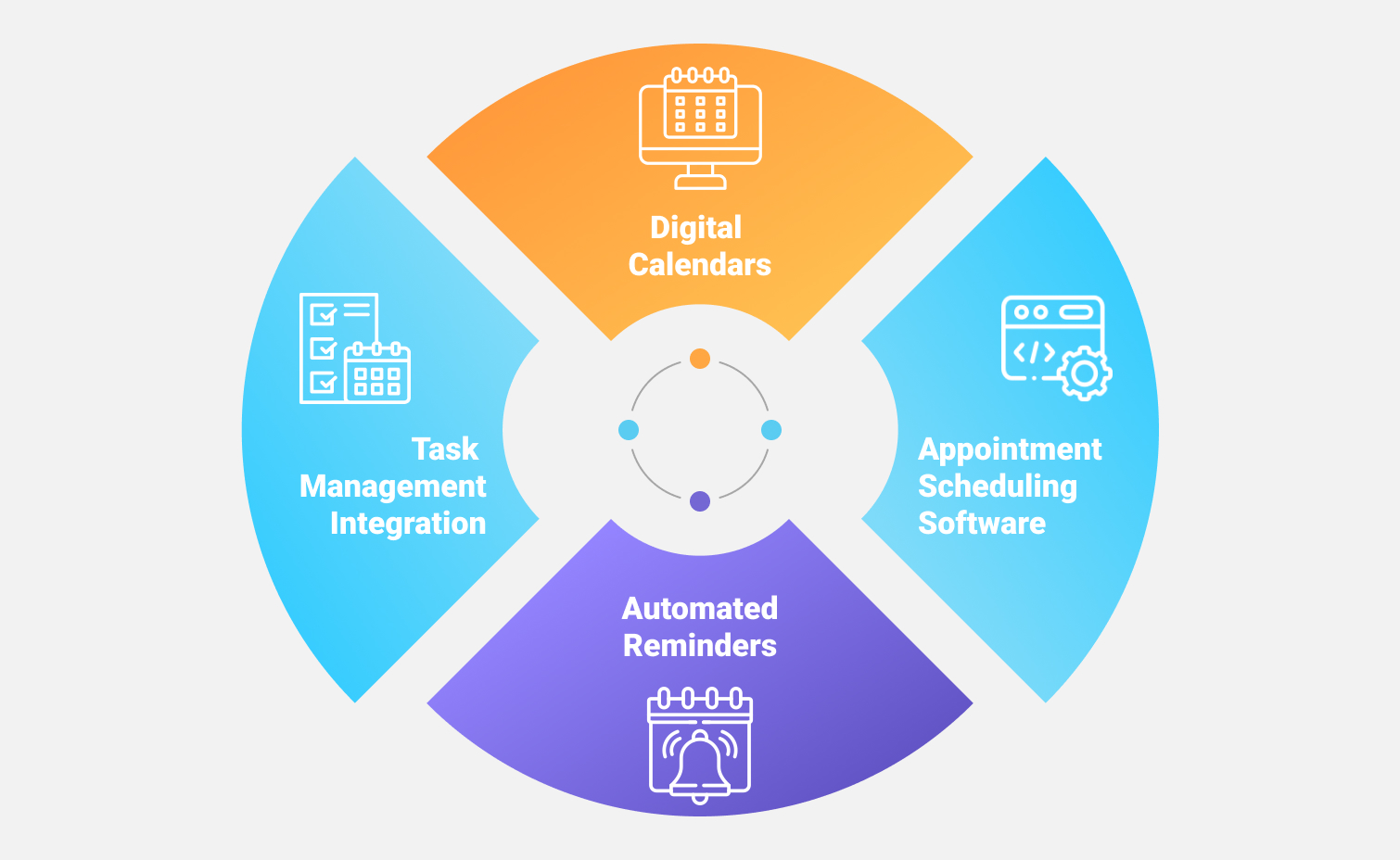
Digital Calendars
The primary digitization calendars include Google Calendar or Apple Calendar; however, integrating it with any advanced tools like Bookly can make it more resourceful with features like:
- Google Calendar Synchronization: Bookly allows employees to sync calendars to avoid double bookings.
- Color-coded Appointments: Bookly’s color-coded calendar feature makes it easy to organize services visually and thus manage work more efficiently.
Appointment Scheduling Software
For businesses, tools like Bookly offer a complete set of features:
- Customizable Look & Feel: Customize the booking form according to your branding and ensure a similar customer experience.
- Mobile-friendly Design: Bookly offers a compatible experience whether you book via a desktop or mobile device.
- Unlimited Booking Forms: Bookly can provide multiple booking forms for different services or departments.
Automated Reminders
Automated reminders reduce no-shows. Bookly allows clients and staff to receive personalized emails, SMSs, or WhatsApp reminders so everyone is informed.
Task Management Integration
Integrating Bookly with platforms like Zapier allows appointment synchronization with task management tools like Asana or Trello, which provides additional coverage of workload status.
Practical Tips for Scheduling Appointments
You can boost your scheduling methods using Bookly with these sneaky things:
- Time blocking: Bookly’s intuitive admin panel facilitates creating time blocks on the calendar for different tasks, such as one for the morning and another for the afternoon.
- Avoiding the sunglass hours: Bookly’s personalized schedules for each service provider will help you optimize employee schedules to allow booking during those times to secure critical tasks.
- Batch appointments: Use Bookly’s sortable and searchable booking list to aggregate as many client calls and appointments as possible while maintaining momentum and minimizing interruptions.
- Confirmation and Notification: Bookly’s automated notifications and calendar integration will keep everyone in sync with the appointment details.
How to Set an Appointment Effectively
When learning how to schedule meetings effectively, consider the following tips:
- Utilize Scheduling Tools. Tools like Bookly make the appointment-making process easy. They handle everything from reminders to confirmations to rescheduling.
- Plan Ahead: Determine the best way to schedule appointments for the week or month ahead. This approach enables you to apportion time between business appointments and personal tasks.
- Stay Organized: Use a centralized system to track appointments and avoid overlaps or missed meetings.
Handling Scheduling Conflicts
Coincidentally, even with the finest tools, conflicts can arise. Here is how most of the Bookly features solve that:
- Early Communication: Bookly’s cancellation function allows an admin, staff member, or client to instantly terminate an appointment and save precious time with one click.
- Put Suggestions on Hold: Clients suggest other possible dates through Bookly’s flexible booking limits as they wish to meet on alternative dates due to conflicting commitments.
- Use Buffer Times: Bookly lets you schedule your calendar while keeping it manageable by limiting how far into the future you can make an appointment.
Managing Recurring Appointments
Recurring appointments are a breeze with Bookly. Here’s how you can streamline the process:
- Automated Scheduling: Clients and staff can set up recurring meetings on Bookly. Scheduling without any mismatched appointments.
- Check-Ins For A Given Interval: Bookly’s built-in analytics are worth examining. You will learn how to use them to assess the relevance and effectiveness of your recurring appointments.
- Streamlined Communications: Keeping everyone in touch using Bookly as multilingual and personalized templates.
Common Mistakes to Avoid
Lastly, avoid the following when setting appointments: overbooking. With Bookly, unlimited service providers can construct balanced and realistic staff schedules even with high demand.
- Underestimating time: To avoid this problem, allow time for traveling or preparations via Bookly’s buffer times or detailed calendar views.
- Not following up: With Bookly notification template customizations, you would easily send follow-ups that confirm commitments.
- Neglect of Downtime: Bookly’s calendar view lets you schedule intermissions or breaks to avoid burnout and increase productivity.
Follow these basic scheduling rules with Bookly, which offers many other advanced features that simplify booking management. Whether you need staff management, customizable booking forms, or automated reminders, Bookly provides everything you need to schedule an appointment effectively and efficiently.
Conclusion
Efficient appointment planning is an art that teaches you to manage your time and commitments. By setting priorities, using technology, and following best practices, you can take control of your schedule and relieve tremendous stress. Whether you learn how to schedule an appointment for a business or understand how to establish an appointment for yourself, the right how-tos can make a difference.
Consider trying one or two scheduling tips. With all these changes, you will be surprised to see the difference in productivity and efficiency over time. So, what are you waiting for? Try a new scheduling tool or technique today and see the difference. With efficient scheduling, every appointment becomes a stepping stone toward a more organized and successful endeavor.



